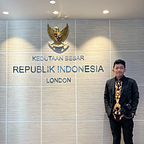For some students, education is expensive, especially higher education. Many students struggle to pay their tuition and meet their daily expenses. In this situation, one of the solutions pursued is through scholarships. Scholarships are highly sought after, whether it grants financial aid, mentorship, or other benefits. Scholarships are generally divided into two categories: need-based and merit-based. This essay will focus on the latter, arguing that merit-based scholarships perpetuate inequality.
Unlike need-based scholarships granted to those with financial difficulties, merit-based scholarships are awarded to those who achieved certain qualifications set by the scholarships team. This scholarship follows the idea of meritocracy: we can be successful or achieve something because of our capabilities and competence. In other words, we will be rewarded for our hard work and dedication, not other things, such as our parents’ social status (Illing, 2019). Thus, everyone is assumed to have the same chance to secure success and enhance social mobility (Liu, 2011). In the context of merit-based scholarship, it is given to those who have the best qualifications. While this may look like a fair system and historically has helped many people improve their livelihoods, it is crucial to consider the myth of meritocracy and how it affects this seemingly ‘fair’ system.
Meritocracy is a myth. Some may have heard about this before. Meritocracy promises equal opportunities to reach our goals, but how can this happen if the society we live in is unequal? Markovits, who wrote The Meritocracy Trap book, believes that the rich will benefit more than the poor in this merit system (Illing, 2019). Put it simply, upper-class people have more resources and access to enhance their knowledge and skills, including better education. For instance, Arsendy (2018) found that parents’ education level still influences their children’s educational performance. Consequently, kids from lower-income families are unable to reach their full potential. Research from Rizky, Suryadarma, and Suryahadi (2019) concluded that children from low-income families are more likely to stay poor when they have grown up. Thus, upper-class families will have a far bigger chance to come as the winner in this meritocratic world.
These limitations also apply in the case of merit-based scholarships. Many scholarships have a high set of requirements that values individual competence. For example, some require the applicant to have academic and non-academic achievements or leadership and organisational experience. Furthermore, international mobility or study abroad scholarships require a certificate of English proficiency test that costs millions of rupiahs. These qualifications are more likely to be met by rich people. Since they have better access to the best quality education, they become more competitive in academic and non-academic performance. As a result, the disadvantaged students–who need the scholarship more than their wealthy counterparts–struggle to improve their skills without scholarships. Meanwhile, the bottom of the poorest may never think about applying for scholarships since they strive to bring food to the table every day.
Several research studies have shown the relationship between merit-based scholarships and underprivileged students. Herbaut and Geven (2020) summarised from some studies that merit scholarships tend to reinforce inequalities or are inadequate to improve disadvantaged students’ conditions. Moreover, only when the scholarship has need-based requirements does it benefit the poor students. Taylor (2018) found that law school scholarships are frequently given to privileged students, increasing student loan debt among poor students. Furthermore, Ribar and Rubenstein (2021) found that White and Asian students are more likely to get scholarships than Black and Hispanic students. This finding shows the intersect between inequality and racism.
In conclusion, meritocracy aims to choose the brightest while encouraging people to do their best to accomplish their goals. Unfortunately, this system fails to consider the inequality within our society and favour rich people more than the poor. Suppose we aim to minimise the gap between rich and poor and support the idea of meritocracy; a structural change is needed to guarantee equal opportunities for everyone, especially in pursuing education. In the meantime, merit scholarships could become more inclusive, for instance, by subsidising costs for English proficiency tests, creating affirmative quotas for underprivileged students, or democratising scholarship information and hacks.
References
Arsendy, S. (2018). Is education reform finally paying off for Indonesian kids? — Indonesia at Melbourne. Retrieved 20 February 2022, from https://indonesiaatmelbourne.unimelb.edu.au/is-education-reform-finally-paying-off-for-indonesian-kids/
Herbaut, E., & Geven, K. (2020). What works to reduce inequalities in higher education? A systematic review of the (quasi-)experimental literature on outreach and financial aid. Research In Social Stratification And Mobility, 65, 100442. doi: 10.1016/j.rssm.2019.100442
Illing, S. (2019). How meritocracy harms everyone — even the winners. Retrieved 18 February 2022, from https://www.vox.com/identities/2019/10/21/20897021/meritocracy-economic-mobility-daniel-markovits
Liu, A. (2011). Unraveling the myth of meritocracy within the context of US higher education. Higher Education, 62(4), 383–397. doi: 10.1007/s10734–010–9394–7
Ribar, D., & Rubenstein, R. (2021). Dynamics of Merit-Based Scholarships in Georgia. Georgia: Georgia Policy Lab.
Rizky, M., D. Suryadarma, and A. Suryahadi. 2019. Effect of Growing Up Poor on Labor Market Outcomes: Evidence from Indonesia. ADBI Working Paper 1002. Tokyo: Asian Development Bank Institute. Available: https://www.adb.org/publications/effect-growing-poor-labor-market-outcomes-evidence-indonesia
Taylor, A. N. (2018). Robin Hood, in Reverse: How Law School Scholarships Compound Inequality. Journal of Law & Education, 47(1), 41–108.
